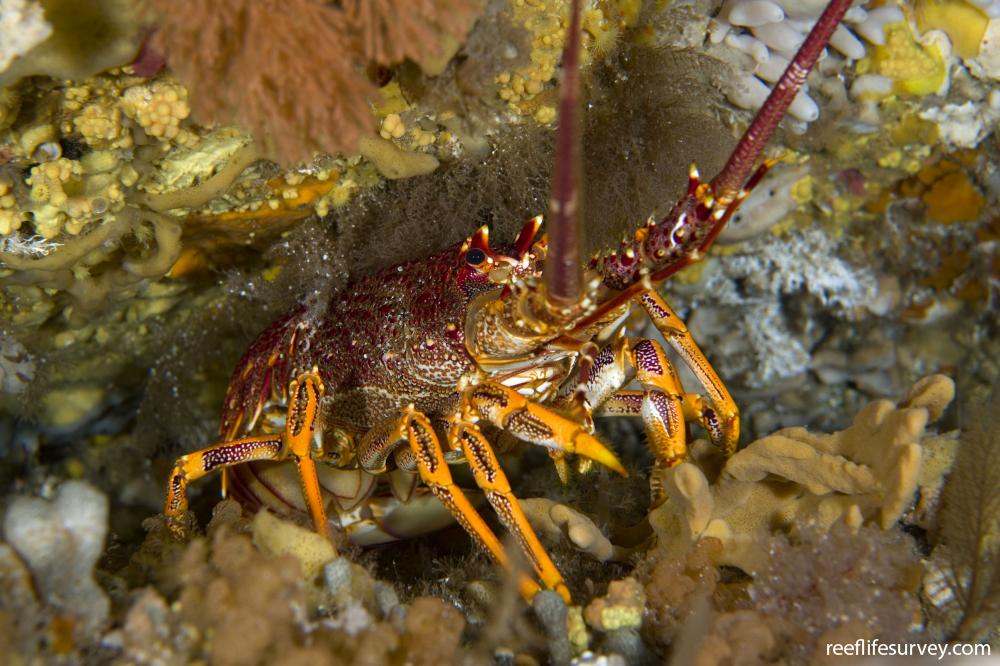Jasus edwardsii
Southern rock lobsterSimilar Species
Same Genus
Distribution
Temperate Australasia
Description
Two long spines (‘horns’) projecting forward from the front of the carapace beside the eyes. It has an orange-red colour in shallow water, gradually changing to a reddish purple or lighter colour at depth. . After a larval stage (thought to last for 8-9 months) the animals settle in large numbers in narrow crevices on shallow reefs. Growth is quite variable between sites, with the largest animals living for more than 20 years. The scientific name of this species has changed in recent times; it was originally classed with the South African species J. lalandii, then given its own name J. novaehollandiae, and is now regarded as the same as the New Zealand species J. edwardsii.
Information
Max Size: 23 cm
Sea Temperature Range: 11.3-21.6°C
Depth: 1-250 m
Habitat Generalization Index: N/A
Also referred to as the SGI (Species Generalisation Index), this describes the habitat niche breadth of the species. Species with values less than 15 are found in a relatively narrow range of reef habitat types (specialists), while those over 25 may be found on most hard substrates within their range (generalists). Learn more here.
Conservation and Rarity
IUCN Status: Least Concern
Occurrence: Common (38.4% of sites)
Occurrence describes how often the species is found on surveys within its distribution. It is calculated as the % of reef sites surveyed by RLS divers across all the ecoregions in which the species has been observed
Abundance: Few (3 per transect)
Abundance is calculated as the average number of individuals recorded per RLS transect, where present.
Edit by: GJ Edgar. 2008. Australian Marine Life. New Holland, Sydney















